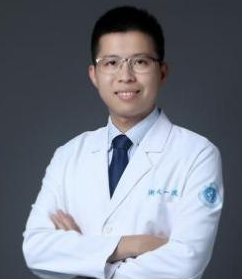RUAN Jian, M.D.
Director, Department of Medical Oncology
Dr. RUAN has expertise in the diagnosis and treatment of gastrointestinal cancers and is actively involved in multiple clinical research studies.

The Oncology Department at the First Affiliated Hospital, Zhejiang University School of Medicine, offers a distinctive environment for outstanding candidates to pursue advanced training in the diagnosis and treatment of gastrointestinal cancers, such as gastric, colorectal, and esophageal cancers, as well as other malignancies, including lung cancer and head and neck tumors.
Throughout your training, your responsibilities will evolve as you gain experience, skills, and confidence. You will become proficient in the multidisciplinary management of complex cancer cases, integrating advanced diagnostic techniques, cutting-edge therapies, and innovative research approaches. This program is designed to equip you with the expertise needed for a thriving academic or clinical career in oncology.
From your first day with us, you will experience our dedication to patient-centered care. Rooted in a culture that prioritizes the needs of patients, our team—comprising healthcare providers, researchers, and educators—is unified by a mission to deliver compassionate, high-quality care and to advance the boundaries of medical science.
We value the diverse backgrounds and experiences that each trainee brings. Our commitment is to mentor you in both clinical practice and scientific research, fostering your potential to make a meaningful impact in the fight against cancer and transforming lives of patients.
1. Gaining hands-on experience in both routine (such as endoscopic procedures, biopsies, and chemotherapy management) and advanced (such as precision medicine, immunotherapy, and multidisciplinary tumor board planning) aspects of gastrointestinal and systemic oncology in a one-on-one mentorship setting with our expert oncologists.
2. Direct access to renowned faculty members who are not only dedicated to delivering exceptional patient care but also actively engaged in advancing the field of oncology through education and research. Our faculty members are recognized leaders, publishing over 10 articles annually and presenting cutting-edge findings at international conferences.
3. Participating in daily clinical rounds as part of a focused team led by a senior oncologist. During rounds, new cases are reviewed, treatment plans are discussed, and in-depth teaching sessions are conducted to enhance learning.
4. Exceptional research opportunities in areas such as precision oncology, biomarker discovery, and immunotherapy for gastrointestinal, pulmonary, and head and neck cancers.
5. Extensive support for clinical research, enabling trainees to design and execute meaningful projects that contribute to the scientific community during their rotation.
6. Comprehensive didactic training, including regular morbidity and mortality reviews, weekly multidisciplinary tumor board meetings, journal clubs, and case-based discussions focusing on emerging therapies and best practices in oncology.
7. Progressive autonomy in patient care and clinical decision-making, allowing trainees to grow into confident and independent oncology specialists.
The goal of our program is to prepare trainees to excel in the multidisciplinary clinical management of patients with a wide spectrum of gastrointestinal malignancies and related systemic cancers, ranging from routine cases to complex, advanced-stage diseases. This includes proficiency in outpatient care, inpatient treatment, and advanced therapeutic interventions.
Through exposure to a diverse team of leading investigators specializing in clinical, translational, and basic research in gastrointestinal oncology and related fields, we aim to provide our advanced trainees with a robust foundation in academic research. This will enable them to pursue impactful careers in academic medicine and oncology innovation.
Dedicated research time and comprehensive resources are integral to the program, empowering trainees to design, develop, and execute independent research projects under the guidance of experienced mentors. This rigorous training equips our graduates to become leaders in both clinical care and oncology research.
The program provides a full-time, 2-week to 6-month training experience. In special circumstances, arrangements can be made for other lengths of training depending on your needs and interests.
• Fellows: Qualified applicants for the Medical Oncology Fellowship must have completed an internal medicine residency program at an accredited institution.
• Residents: To be eligible for the Medical Oncology residency, you must have successfully completed a board-approved program in internal medicine.
• Students:
1. Must be a final-year medical student at the time of participation in the rotation, with all core and required clerkship rotations successfully completed prior to the clinical elective.
2. Medical School Approval - A letter of good standing from the dean’s office of your medical school, confirming you are in your final year, expected to graduate on a specified date, in good academic standing, and eligible to complete the elective for academic credit.
Focus Areas & Subspecialties:
• Lung cancer
• Esophageal cancer
• Gastric cancer
• Colorectal cancer
• Hepatocellular carcinoma (Liver cancer)
• Pancreatic cancer
• Ovarian cancer
• Cervical cancer
• Head and neck tumors
• Multidisciplinary management of advanced solid tumors
• Targeted therapies and immunotherapies for solid tumors
• Management of hereditary cancer syndromes
• Palliative care and symptom management in oncology
• Multimodal treatment approaches (surgery, chemotherapy, and radiation therapy)
• Multidisciplinary team coordination for complex oncological cases
• Participation in clinical trials for novel cancer therapies
• Precision medicine applications in oncology
Skills:
• Advanced Procedural Skills: Chemotherapy administration, management of infusion reactions, thoracentesis, paracentesis, fine needle aspiration of lymph nodes, etc.
• Diagnostic Proficiency: Interpretation of imaging studies (CT, MRI, PET-CT), reading pathology reports, and analyzing tumor markers.
• Therapeutic Expertise: Safe administration of immunotherapy, targeted therapies, and biologics, management of oncological emergencies (e.g. tumor lysis syndrome, febrile neutropenia).
• Supportive Care Skills: Pain management, nutritional support, handling of complications related to cancer therapies (e.g. mucositis, neutropenia, anemia).
• Multidisciplinary Coordination: Active participation in tumor board discussions, formulation of individualized treatment plans, and collaboration with surgical, radiation oncology, and palliative care teams.
Monday
1st Week: introduction & welcome, program overview and objectives, department introduction
Weekly: MDT conferences, complicated case study
Weekly: mentor one-on-one training:
Topics:
• Molecular oncology
• Immunotherapy principles
• Advanced diagnostic imaging
• Tumor microenvironment
• Oncological emergencies
Tuesday
Weekly: outpatient observation, academic lecture, clinical skills training
Biweekly: research training:
Major themes:
• Tumor biology
• Biomarker discovery
• Clinical trial design
• Personalized medicine
• Cancer survivorship
Wednesday
Weekly: clinical rounds, case-based discussion, teaching rounds
Biweekly: multidisciplinary case simulation
Weekly: lectures:
Topics:
• Principles of chemotherapy
• Advanced imaging interpretation (PET-CT, MRI)
• Side effect management in oncology
Thursday
Weekly: practical skills training:
• Venipuncture and catheterization
• Central line placement and care
• Bone marrow aspiration and biopsy
Biweekly: Clinical procedural hands-on training
Friday
Weekly: journal club, clinical rounds, advanced oncology topics discussion
Monthly: special task training:
• Palliative care strategies
• Cancer prevention techniques
Last Week: wrap-up & reflection, participant presentations or discussion of key takeaways, feedback session
After each rotation, faculty members evaluate each fellow based on core competencies including patient care, medical knowledge, practice-based learning and improvement, interpersonal and communication skills, professionalism, and system-based practice. Faculty members provide verbal feedback and conduct individual evaluations with each fellow to discuss their performance.
For procedural skills, technical competence is assessed through structured evaluation forms, simulation-based training, and periodic performance assessments. A dedicated skills assessment program is conducted biannually to ensure progress in technical proficiency.
Additionally, monthly aggregate evaluations of each fellow's clinical performance and professional development are conducted by a Clinical Competency Committee. This committee reviews feedback, monitors progress, and identifies opportunities for further improvement to support the fellow's growth and success.

Director, Department of Medical Oncology
Dr. RUAN has expertise in the diagnosis and treatment of gastrointestinal cancers and is actively involved in multiple clinical research studies.

Chief Physician, Department of Medical Oncology
Dr. XU is responsible for and actively participates in multiple clinical research studies in China and internationally. He has extensive experience in the diagnosis and treatment of gastrointestinal cancers.
The program is free of charge.